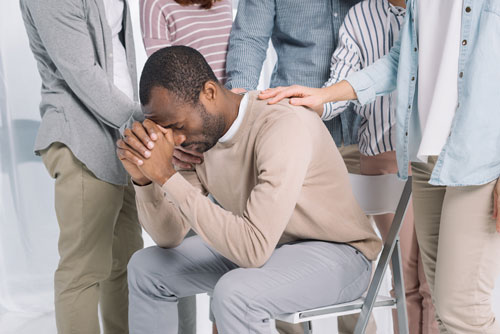More About Mental Health Counseling
Table of ContentsThe Greatest Guide To Mental Health CounselingGetting My Mental Health Counseling To WorkSee This Report about Mental Health CounselingHow Mental Health Counseling can Save You Time, Stress, and Money.Mental Health Counseling Things To Know Before You Buy
With therapy, you can obtain understanding into your own patterns of behavior and communication, which can lead to even more fulfilling and satisfying connections with good friends, household, and romantic companions. What we believe, we materialize. If you're taken in with unfavorable emotions and adverse thoughts that are hindering your life, treatment can help., or there are various other unfavorable methods you behave. Treatment can assist you change those habits that are having an adverse effect on your globe and relationships.

The significance of therapy surpasses your psychological health. Getting therapy to resolve particular facets of your life can help you be much more effective in other locations, consisting of job. Some study has also revealed that there's a straight relationship in between seeking psychological health assistance and a decrease in missed job.

Things about Mental Health Counseling
There are even extra benefits of therapy than just the ones we have reviewed., or develop partnerships (enchanting or those with family members or close friends) in a healthy way.
For the purpose of today research study, perceived advantages and barriers to mental health and wellness help-seeking are being explored. Previous research discovered that regarded barriers have a substantial result on college students' health and wellness behavior choices (Von Ah, Ebert, Ngamvitroj, Park & Kang, 2003). Perceived benefits and obstacles to help-seeking were specifically selected because of their impact on decision-making and ultimately action (Glanz, Rimer, & Su, 2005).
The present research seeks to analyze whether or not stigma serves as an obstacle to therapy among university trainees. Among these were: (1) choosing to deal with mental health troubles themselves, (2) not having adequate time to get involved in treatment, (3) questions about whether mental health therapy is effective in remediating issues, (4) a belief that stress is typical or the issue will certainly get better without therapy, (5) absence of cash, and (6) worry about what others would believe if they located out regarding therapy participation.
Personnel in university psychological health centers might be viewed as unfriendly, and long wait times for services might be "repulsive" for pupils. Elements promoting much more favorable attitudes are frequently at the contrary pole of those variables recognized as obstacles.
Fascination About Mental Health Counseling
One in 3 (34.6%) reported residing on campus and one in 4 (23.3%) reported coping with parents. Almost fifty percent check that of students were entailed view it in university companies and 1 in 10 reported remaining in a society or sorority. More than one-third of pupils (38.1%) reported that they had a relative or buddy with a detected mental health problem.

The 6-Minute Rule for Mental Health Counseling
Univariate F-tests determined particular subscale items that substantially differed. Women were less most likely than males to view people that go to counseling as psychologically weak, people who go to therapy as insane, to really feel that people with mental health issue ought to why not find out more take care of issues by themselves, that people who most likely to therapy as not able to resolve issues, that people who go to counseling slouch, and to really feel that people that go to therapy are different from typical individuals in a negative means.
In a similar way, research study results revealed that women were significantly less likely than males to hold stigma-related perspectives. This is consistent with previous study which also located that males hold greater levels of regarded stigma than ladies (Chandra & Minkovitz, 2006). Based on research study findings, it is evident that males might be much less likely than ladies to look for therapy due to reduced viewed obstacles along with high stigma-related perspectives.
All About Mental Health Counseling
In addition, university health experts may provide educational programs targeting men with info on the advantages of psychological health treatment and the importance of looking for help when needed., the present research study found no considerable differences in the number of viewed obstacles to help-seeking behaviors based on sex.
This searching for was unanticipated and could highlight that those that had received therapy had a better idea of delay times and various other "accessibility" barriers that might make it challenging to begin therapy. Perhaps, individuals that have received therapy sight much more barriers than participants who have not gotten therapy considering that looking for therapy services once again might involve concern of self-disclosing individual details to a new therapist.
Comments on “A Biased View of Mental Health Counseling”